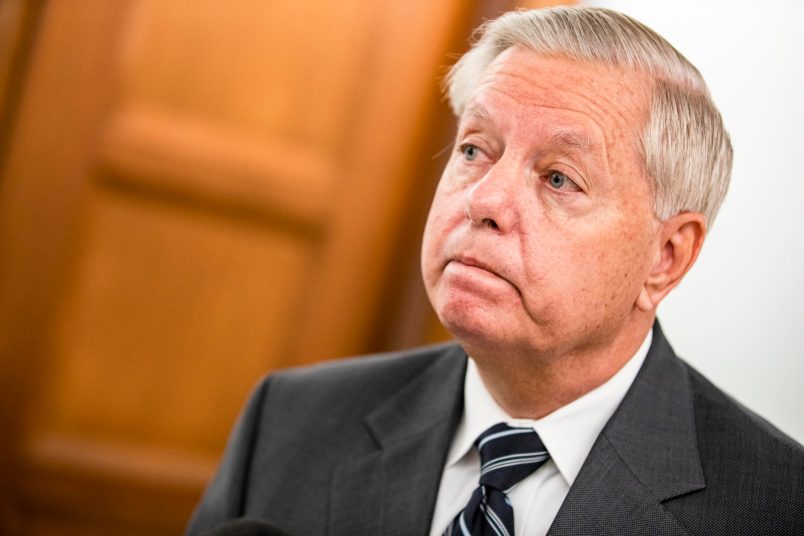Sen. Lindsey Graham (R-SC) on Tuesday reached an agreement with Fulton County district attorney Fani Willis to move any challenges about the legality of the subpoena she issued in her special grand jury’s investigation to state or federal court in Georgia.
The news comes a day after Willis asked a federal judge to reject Graham’s request to quash the Fulton County subpoena.
According to a stipulation filed Tuesday, attorneys for Graham and Willis said both parties “have reached an agreement to withdraw all process and proceedings pending” before the South Carolina district court.
“Senator Graham has agreed to accept service of a subpoena for testimony from the Fulton County Special Purpose Grand Jury in Atlanta, Georgia, without waiving any challenges or any applicable privilege and/or immunity,” the lawyers wrote.
Any potential challenges to the subpoena will be pursued in either the Fulton County Superior Court or the U.S. District Court for the Northern District of Georgia, the lawyers wrote.
Last week, Graham asked a federal judge in South Carolina to quash the subpoena issued by Willis. Graham’s request followed a ruling by a county judge in Georgia that he must testify before the special grand jury in Willis’ investigation into former President Trump’s efforts to subvert the 2020 election results in Georgia.
Willis pushed back in a court filing on Monday, arguing that the District of South Carolina lacks jurisdiction because Graham had not been served and therefore his challenge was premature. Willis also said Graham did not file his challenge in the correct court and that he might not be served in South Carolina.
In addition to Graham, the grand jury subpoenaed several members of Trump’s legal team, who helped out with various schemes to keep the former president in office, earlier this month. A court filing on Monday also revealed that Willis subpoenaed Rep. Jody Hice (R-GA) last month — Hice filed a motion to quash the subpoena shortly after.
Hice was among a group of Trump allies who objected to certifying Joe Biden’s electoral victory on Jan. 6. Hice was allegedly a participant in a Dec. 21, 2020 at the White House with other members of the House Freedom Caucus alongside then-White House chief of staff Mark Meadows, Trump lawyer Rudy Giuliani and other GOP lawmakers, according to the Jan. 6 Select Committee’s witness testimony. The meeting allegedly involved discussions about a scheme to appoint a fake slate of pro-Trump electors who would falsely claim to be electors from Georgia, despite Biden’s victory in the state.
New court documents filed Tuesday also indicated that Willis has told lawyers of the 11 fake Trump electors that they are considered targets in the special grand jury’s probe in light of “new evidence.” Georgia prosecutors reportedly previously considered the fake electors to be witnesses in the grand jury investigation, according to CNN.
“As our investigation has matured and new evidence has come to light, in a spirit of integrity we feel it only fitting to inform you that your clients’ status has changed to ‘Target,’” prosecutors said, according to the filing.
Attorneys for the fake electors said in the court filing that they are moving to “quash” grand jury subpoenas for appearances beginning on July 25, calling them “unreasonable and oppressive.”



